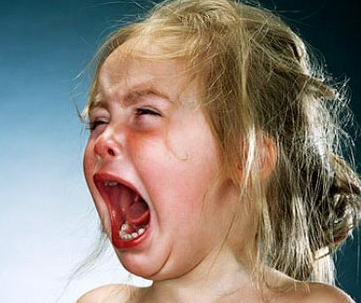Looking back, people remember their time spent at summer camps with grins on their faces. They reminiscence on the extravagant adventures into the woods, the tasty s’mores and the catchy camp songs. But working as a camp staff member, I didn’t quite have the same pleasurable memories.
What I remember was the constant screaming and shouting and non-stop running around. When we told the campers to quiet down, many of them wouldn’t listen, and instead they preferred to completely ignore us or roar a defiant “no.” On the extremely unlucky days, I’ve been bitten and hit by a volley of tiny hands and teeth. Sure, not all the kids were violent, stubborn little beings; some of them were compassionate, lovable individuals. Unfortunately — or maybe fortunately — working in the camp made me realize one thing.
I never want to have children.
Society starts pressuring us to have kids the moment we reach our late 20s and early 30s. Propaganda by elders tells us that having children will “improve your life significantly” by giving it “meaning” and “purpose.” However, the reality is not as rosy and doesn’t apply to anyone. There are multiple brutal truths why being a parent for many people would be a disastrous idea.
Firstly, having kids means a good portion of your free time will go down the drain. Feeding your children, reading to them, driving them to school and so on are not things you can finish within a few hours. You end up focusing all your energy on them and neglect your own wants and aspirations. You can’t spend as much time pursuing your hobbies like playing the guitar, reading spy novels or hitchhiking around Europe.
For career-driven folk, it’s tough to invest the time and energy into advancing a career because of the need to balance work and family life. This is especially true for those many women who take on the brunt of childcare responsibilities and suffer professionally for it. Through having kids, the other critical parts of your identity often take a backseat and one label becomes dominant: being a parent.
You don’t only lose time spent with yourself when you have kids, but you also lose it with your loved ones. When couples don’t have the time alone to do the things they love — whether that’s watching a movie together or having sex — they won’t be able to enjoy their marriages properly. In fact, according to research presented at an American Psychological Association’s convention, 67 percent of couples see their marital satisfaction plummet after children are born. Although many couples assume that having kids will strengthen their marriages through creating something “beautiful” together, the reality is that they often lose the quality of their own lives while trying to bring in another one.
Children don’t just drain the energy out of you — they drain your money, too. All the diapers, food, clothes and toys you’d have the buy makes kids quite expensive. According to a 2017 U.S Department of Agriculture study, a single child costs $233,610, with costs varying depending on where you live.
But this statistic doesn’t include many other hefty expenses like paying for a college education. A year at a private university would cost an added $48,540 per year, while at a public one it’d be $21,370 annually, which over four years would be $181,600 and $85,480, respectively. Adding public college costs to the other base costs, your total bill would be an enormous $319,090 — enough to buy a nice home in many parts of the state. Having a child, therefore, makes you less financially flexible and stable.
To support children, you have to sacrifice great potential investments which could improve your overall economic standing, like property or stocks/mutual funds. For adults with more limited means, having a kid could potentially be disastrous — it may drive you below the poverty line and make you barely able to purchase necessities. Because of the high price tag, interested couples need to see kids as any other type of investment. Before throwing their money at it, they need to see if the benefits really outweigh the costs.
Clearly, kids come with many hidden complications and difficulties. The point of this article is to not discourage everyone from having children; if that were the case, the human race would cease to exist. Some people genuinely do profit emotionally and mentally from having kids, and those individuals should have them.
Rather, I contend that many people do not have kids for the right reasons and are not prepared for the baggage that come along. That is why it is essential for parents to think long and hard before bringing new life into this world.
Parenting reminds me of skydiving from a plane: with safeguards like a parachute and the aspiration to do so, it’s an enjoyable experience. But without these key factors, you’re going to come crashing down — really, really fast.
Arnav Mehra is a Collegian contributor and can be reached at [email protected].



















joeyd • Nov 7, 2019 at 1:53 am
” Because of the high price tag, interested couples need to see kids as any other type of investment”
Very capitalistic! What would you say is the intrinsic value of children is? Price to earnings ratio? And what if you get a child who is like a lottery ticket, becomes really rich and successful and helps you out?
But what are the odds of that?/ And the amount of you have to invest and what would your return be otherwise??
I like your take on the money value of children and having kids!